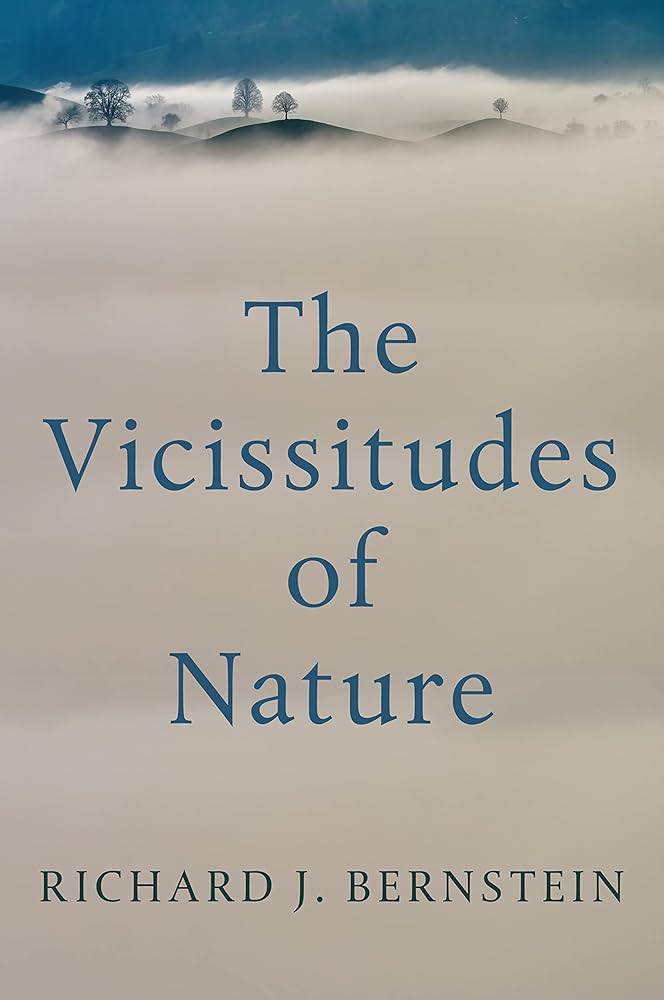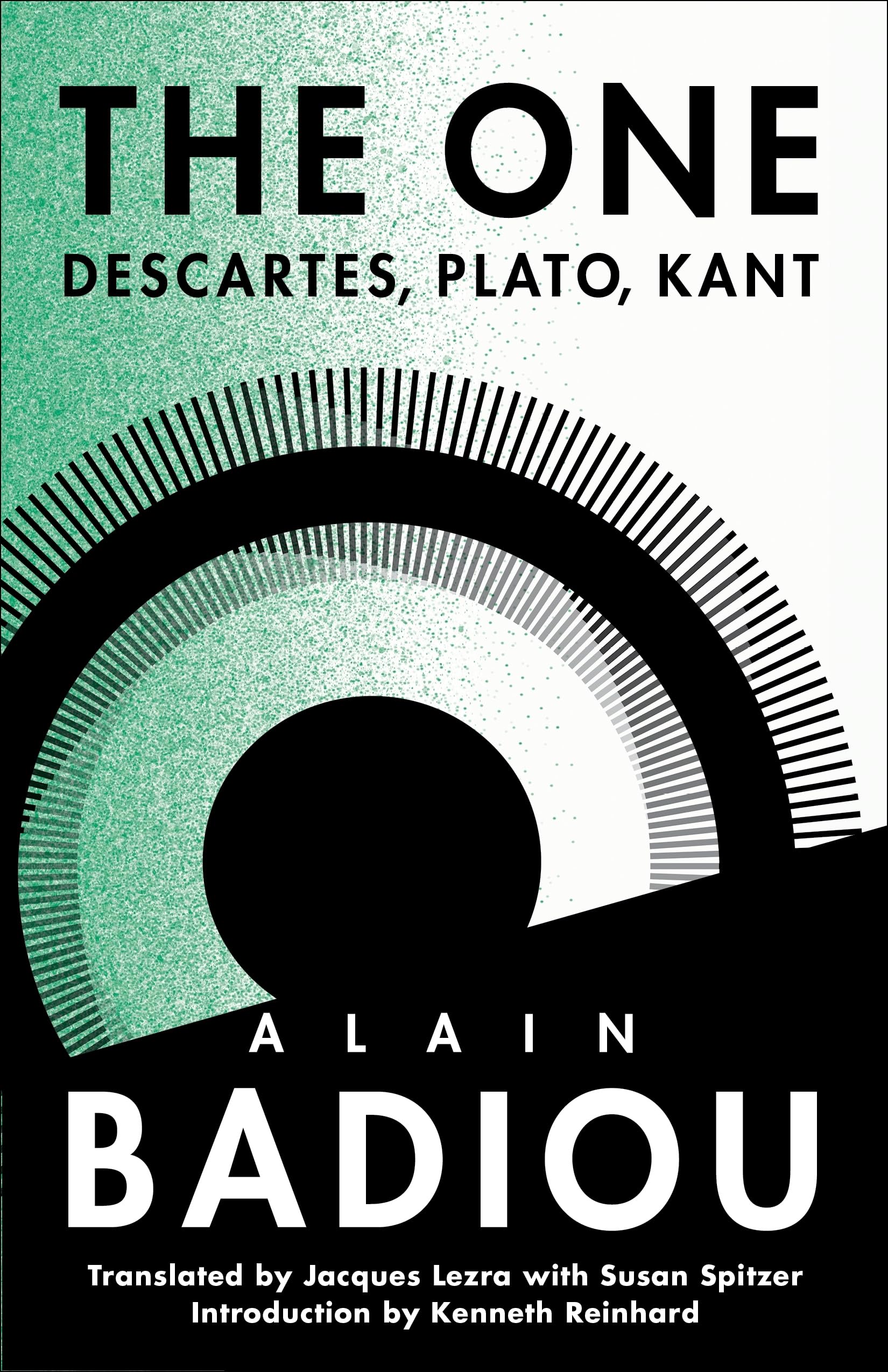The Vicissitudes of Nature: From Spinoza to Freud by Richard J Bernstein
Richard J. Bernstein’s The Vicissitudes of Nature examines philosophical conceptions of nature from Spinoza to Hegel, Marx, Nietzsche, and Freud, emphasizing their relevance in addressing contemporary environmental and existential crises. Bernstein explores Spinoza’s naturalism, Hume’s emphasis on custom over rationality, Kant’s unresolved tension between natural causality and freedom, and Hegel’s integration of Nature and Spirit.
In his most recent book, The Vicissitudes of Nature, Richard J. Bernstein examines how the concept of nature has been developed and deployed by philosophers since the dawn of the modern era, beginning with Spinoza, ‘the “father” and founder of modern naturalism.’(3) Spinoza has been largely neglected by analytic philosophy, and indeed, in terms of his monistic metaphysics and bold claims on behalf of human reason, he represents the antithesis of analytic thought, which has always placed a high premium on low epistemic risk. Even while Spinoza scholarship has made great advances, his thought is still largely regarded, at least in American philosophy departments, as of merely historical interest. Bernstein shows just how unfortunate and misguided this is: Spinoza’s thought is more relevant than ever because how we conceive of nature (including human nature) has acquired a terrible urgency in the face of widespread environmental devastation and anthropogenic climate change.
Bernstein agrees with the late Yirmiyahu Yovel in regarding Spinoza as first and foremost a philosopher of immanence. As Bernstein puts it, ‘[t]here is nothing outside or beyond nature – including reason (ratio).’ (49) For all their differences, David Hume (to whom Bernstein devotes his second chapter) is also a philosopher of immanence: both Spinoza and Hume ‘reject any appeal to what is divine or supernatural to account for the phenomena of this world.’ (70) Bernstein argues that Spinoza’s assimilation of causal necessity to logical necessity is excessive. Hume, however, goes to the other extreme in viewing necessity as ultimately reflecting a certain ‘habit of the mind.’ Hume’s analysis of causality presents, according to Bernstein, ‘one of the clearest examples of why [Hume] rejects any appeal to a rational justification for knowledge of matters of fact.’ (56) Hume argues that we are determined by custom alone to suppose nature behaves uniformly, according to causal laws – and as Bernstein underscores, Hume’s appeal to custom, or a habit of the mind, is an appeal to ‘a nonrational feature of human nature.’(59) It is a matter of fact, a brute feature of the world, that custom and habit operate in just this manner, and we search in vain for any further explanation of why this is so.
Chapters three and four are taken up with Kant and Hegel respectively. Kant’s naturalism is not as thoroughgoing or consistent as Spinoza’s. For Kant, nature or the world of phenomena is conditioned by the very structure of human reason, that is, the pure categories of the understanding and the pure forms of sensibility. We can have no theoretical knowledge pertaining to the world as it is in-itself, or noumena. What this means is that there is in addition to ordinary, empirical natural science, a pure or a priori science of nature that ‘lays out the foundational conditions for the possibility of empirical natural science.’(76) Because our knowledge and experience of the phenomenal (or natural) world is conditioned by the categories of the understanding – including causality – it is a purely deterministic realm, such that if we were exclusively natural beings ‘this would entail that freedom is an illusion.’ (104) But since we can have no theoretical knowledge pertaining to ourselves as noumenal beings, Kant is able to preserve the possibility of freedom; and as Bernstein rightly points out, allowing for the possibility of such freedom (without which we can account for neither morality nor human responsibility) is one of the major aims of the Critique of Pure Reason (1781). Bernstein argues that Kant is ultimately unable to explain how the causality of nature and the causality of freedom are compatible: ‘when we ask how one and the same event or action can be the result of a necessary series of temporal natural causes and the result of a non-natural non-temporal transcendental freedom, we are left with a mystery.’ (105)
Kant also falters, according to Bernstein, in his conception of purposiveness, which he regards as ‘absolutely essential’ for describing organic life, which cannot be understood solely by reference to mechanistic principles. The problem is that Kant also wants to say that the appeal to purposes or final causes (teleology) is merely ‘a heuristic regulative principle guiding our discovery about what is distinctive in organisms.’ (105) In other words, our ascription of purposes has only subjective validity. ‘It is almost as if Kant is suggesting that purpose functions as if it were a constitutive feature of organisms, but that it is not really a constitutive principle.’ (106) Kant never succeeds in providing a satisfactory explanation of how purpose [Zweck] is at once absolutely indispensable for understanding living nature but not a constitutive principle of biological science.
Bernstein seems to have greater sympathy with Hegel, who refused to regard purposiveness as a merely regulative principle. However, Hegel paid tribute to Kant for making clear the distinction ‘between relative or external, and internal purposiveness; and in the latter [Kant] has opened up the Notion of life, the Idea.’ (113) Hegel maintains, contra Kant, that internal purpose is a constitutive principle of Nature and Spirit [Geist]. In other words, ‘starting with, and building upon, themes already present in Kant, [Hegel] develops them in a way that culminates in a thoroughly anti-Kantian conception of both Nature and Geist.’ (114) Spirit comes into being as the truth of Nature. Like Spirit, Nature is rational, divine, a representation of the Idea. But in Nature, the Idea appears in the element of asunderness – that is, external not only to mind but also to itself (all things in Nature are mutually external, independent existences). Whereas in Nature necessity reigns, the substance of Spirit is freedom.
The primary interpretative question for Bernstein concerns the relationship between these two domains. As he points out, ‘there is a divide among contemporary interpreters of Hegel: those who stress the continuity between Nature and Geist, and those who think there is something so distinctive about Geist that it cannot be explained by an appeal to Nature.’ Bernstein distinguishes between Kantian Hegelians who emphasize the break between Nature and Spirit, and those (such as Italo Testa and Terry Pinkard) who underscore Hegel’s naturalism. Bernstein himself seems inclined towards the latter interpretation, quoting Testa who writes that ‘Spirit […] far from constituting another type of thing, is for Hegel nothing other than a determinate constellation of relations of Nature itself as the one single reality […] Hegel’s naturalism: the idea that there is one single reality – living reality – and different levels of description of it.’(115) Spirit is nature awakened from its slumber. Bernstein rightly emphasizes the fact that Hegel (explicitly following Aristotle) recognizes and appreciates the continuity between human beings and non-human animals. It is not the case, for example, that normativity comes on the scene only with the arrival of human mentality: depending on the complexity of its nervous system, certain animals can also ‘form plans, takes steps to satisfy those plans […] and so forth. Hegel notes […] that the difference between human mindful agency and animal action is that the animal nonetheless does not “know his purposes as purposes.”’(117)
Bernstein notably offers a pointed defense of Hegel’s philosophy of nature (Naturphilosophie) – a key part of his system which was much maligned in his own day, and now is generally ignored, even by Hegel scholars. Bernstein argues against the pervasive myth that Hegel’s approach to Naturphilosophie constitutes an ‘a priori science that falsely imposes its categories on the actual practice of the natural sciences.’ For one, Hegel does not hold to the Kantian distinction between an a priori science of nature which lays out the ‘formal conditions for the possibility of experience and the objectivity of nature.’ The distinction between the a priori and the a posteriori is really a matter of degree; and rather than adhering to this dichotomy we should ‘employ instead the notion of degrees empirical sensitivity.’ As Hegel himself states: ‘Not only must philosophy be in agreement with our empirical knowledge of Nature, but the origin and formation of the Philosophy of Nature presupposes and is conditioned by empirical physics.’ He is not questioning the results of empirical science but the scientistic assumption that natural science alone can provide an adequate philosophical conception of nature. In short, we must distinguish our direct encounters ‘with nature as it exists […] from the task of making nature intelligible.’(122)
Part II of the book is taken up with the ‘masters of suspicion,’ Marx, Nietzsche and Freud – ‘great destroyers’ all, ‘but they destroy in order to build afresh and to reveal new ways of understanding nature.’ especially the nature of human beings. There is an emancipatory component to their thinking, a concern with liberating humanity from the structures that limit our potential. For Marx, this means liberating human praxis, our world-making, self-making activity from exploitative relations of production. For Nietzsche, it means liberating the will to life and power from self-negating morality, religion (Christianity) and philosophy (Platonism). For Freud, it involves freeing ourselves from the suffering caused by the repression of unconscious wishes, so that we can ‘live better […] and if possible, a little happier.’ (132) Although all three are destroyers of the illusions of consciousness, in the end they aim not at detracting from but expanding human consciousness, precisely by ‘tearing away false illusions and enabling us to gain a depth of knowledge about our psychic lives.’(187)
With respect to Marx, Bernstein weighs in on one of the recurring interpretive debates; that is, the question whether there was an epistemological break during Marx’s intellectual development, severe enough to justify a hard distinction between an early humanist Marx (identified with the 1844 Paris Manuscripts) and a late scientific Marx (identified with Das Kapital). Even if the extreme version of the ‘two Marxs’ theory (associated with Louis Althusser) is no longer widely held, the controversy persists because there is no question that there is a development, that at the very least his terminology undergoes a change – references to species-being and human essence drop out – and with it perhaps his thinking about nature. Bernstein’s position is measured and plausible. He does not deny that Marx’s thought underwent significant changes; yet the ‘key points’ concerning nature that we find in the early writings can be traced through the later writings as well. These essential ideas include the claim that human beings modify nature through their labor activity, and in transforming the natural world they transform themselves. Furthermore, under conditions of capitalist exploitation and alienated labor, there is a disfigurement of both human beings and nature; but there are also ‘tensions and contradictions in capitalism that will eventually lead to its destruction.’ (149)
The value of Bernstein’s book consists first, in providing a lucid introduction to these thinkers, while assessing recent scholarship and the consideration of disagreements among their interpreters today. Second, in focusing on the concept of nature, Bernstein is underscoring their significance for us at a time when environmental degradation is posing an existential threat to humanity. Philosophy is not merely of academic concern: how we view the natural world impacts our relationship to the environment; and if we are to find our way to the other side of the crises we face, it will involve rethinking our conception of nature, and relating ‘to nature in a more rational and harmonious manner.’ (153) The Vicissitudes of Nature does not exactly break new ground. What it does do is highlight not only the differences but the ‘hidden affinities’ between these seminal thinkers; and persuasively argue that each ‘presents us with insights and challenges that must be confronted in thinking about humans and nature today.’(204)
Sam Ben-Meir
Dr. Sam Ben-Meir is a philosopher and educator whose work focuses on political philosophy, ethics, and contemporary political issues, serving as an assistant adjunct professor of philosophy at the City University of New York, College of Technology.



